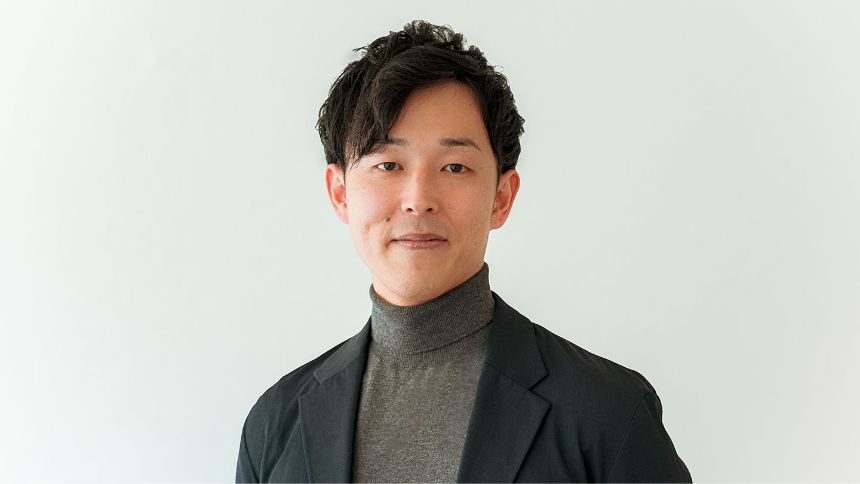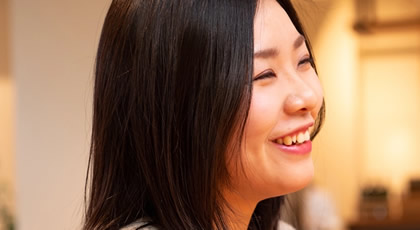
Seeking the Best for the Most, Even When the Going Gets Tough
When startups and venture companies reach a certain scale or recognition, they often begin attracting talent from large corporations. TYPICA, founded in 2019 to revolutionize the traditionally conservative coffee industry’s distribution system, has been experiencing this shift over the past couple of years.
Among them is Ryota Shinagawa, who came on board in March 2024. Following his graduation from the University of Tokyo, Shinagawa spent about a decade in the coffee division of Marubeni Corporation, one of Japan’s largest trading firms that handles roughly one-third of the country’s coffee bean imports. At TYPICA, he serves as a Coffee Expert, expanding sales to medium and large-scale roasters while pouring his energy into creating optimal offers as part of the Origin Team.
So why did Shinagawa step off a steadily cruising behemoth to join a startup that’s more akin to a self-paddled canoe?
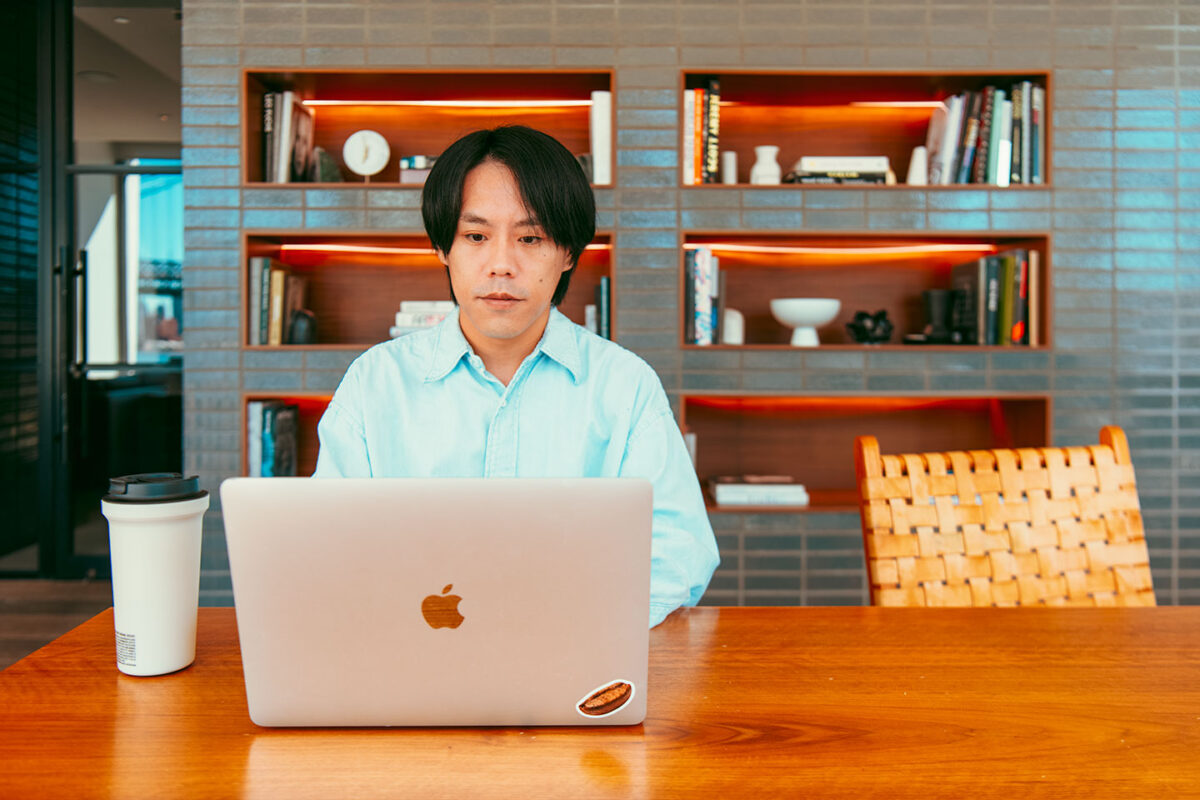
Drawn back to the world of coffee
While working at Marubeni – a massive corporation with 5,000 employees and a total workforce of 50,000 across its group companies – Shinagawa found fulfillment and personal growth in working alongside exceptional colleagues on high-stakes projects. Marubeni’s rock solid foundation offered plenty of benefits through its stability and reliability, yet pursuing innovation and gaining new skills wasn’t easy. Over time, he began to question if this was really the path he wanted to pursue.
The turning point that transformed Shinagawa’s lingering doubts and sense of crisis into action was his wife’s job transfer overseas. After she relocated to New York in 2022, they lived apart for a period, but as loneliness grew, he decided it was time for a change.
“If I’m leaving Marubeni, I might as well try something entirely different outside of coffee.” But even with that thought, Shinagawa couldn’t find a job that truly excited him. He found himself going through the motions in interviews, and he knew better than anyone that his words lacked genuine enthusiasm when explaining his reasons for applying. Ultimately, Shinagawa decided to stay in the coffee industry, and chose to join TYPICA, a company operating within the same industry but with a completely new model.
“What I love about the coffee business is how much it’s built on trust and reciprocal relationships. Price and quality are important, but trust is equally important in deciding which suppliers to work with. Suppliers, too, often prioritize better beans for partners they trust. I found great satisfaction in building relationships that went beyond simple business dealings, which is why I never requested a transfer during my time at Marubeni.”
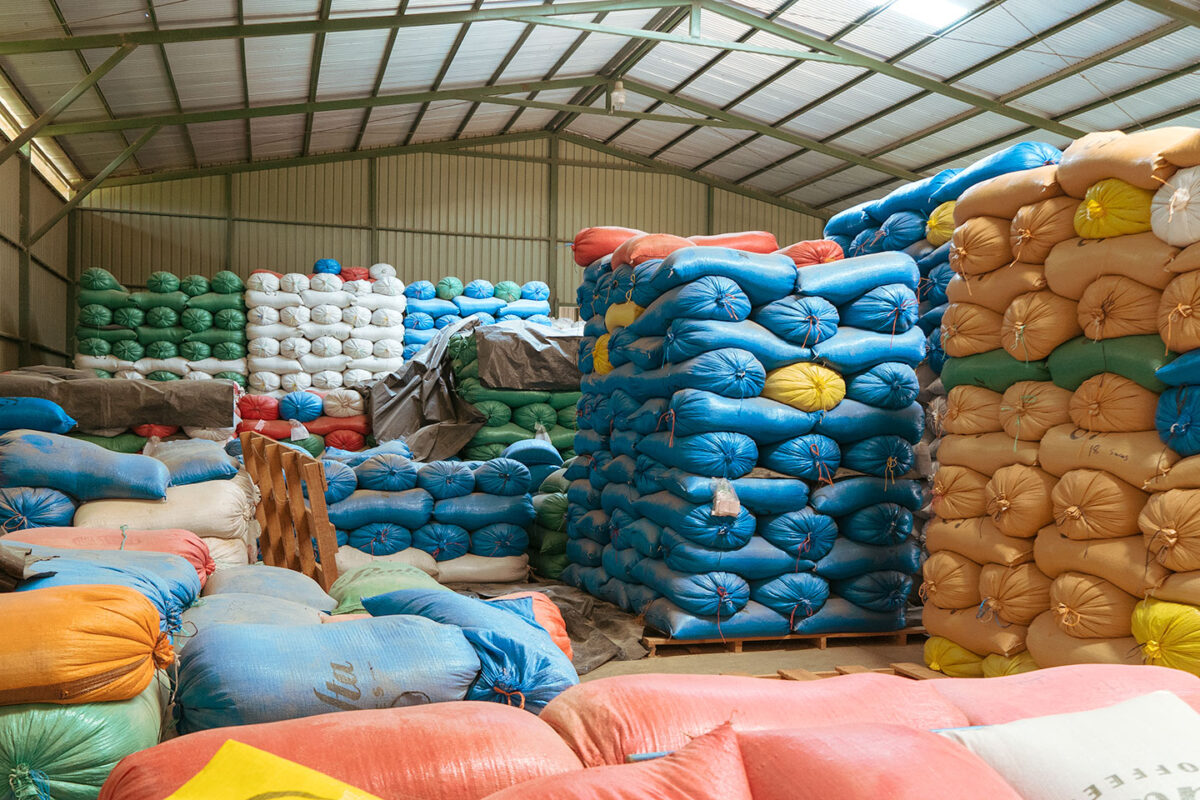
Importing green beans from origins to Japan involves multiple stakeholders – not just suppliers but also shipping lines, warehouse companies, internal teams, and local staff in the producing regions. Though working at a trading firm might sound like a glamorous job, it often involves the unglamorous role of coordinating and balancing various interests.
“It’s nearly impossible to find solutions that satisfy everyone’s interests. But even so, I always tried to coordinate in a way that would create the greatest happiness for the greatest number.”
At TYPICA, Shinagawa’s role may look similar since it’s in the same industry, the type of happiness he seeks here is significantly different. Marubeni worked within traditional business models, whereas TYPICA strives to reshape industry norms by focusing on their own ideals and expanding their community of supporters. A case in point is TYPICA’s mechanism of buying green beans at fixed prices, protecting producers from the swings of international market prices.
“For producers, this approach has its pros and cons; if market prices go up, they miss out on extra profits, but if prices fall, they’re protected from losses. Even when everything is agreed upon, it’s only natural for them to want to sell at those higher prices when markets rise. Especially for farmers who are scraping by daily and can’t guarantee a sufficient harvest next year, they want to earn when they can.
With that in mind, I try to communicate TYPICA’s philosophy and vision to those who share our values. But I also make concessions where I should. Finding that sweet spot is extremely difficult. As someone who has witnessed the realities of green coffee trade, I need to ensure that I’m not closing off possibilities by being fixated on my past experiences, while also making sure the team doesn’t charge ahead on ideals alone. I also feel the need to adapt to the mindset of ‘we sell this because the world should be like this,’ rather than ‘we sell this because there’s demand.’”

Raising the happiness bar for everyone
Shinagawa’s core personality began taking shape during his elementary school years. He was born and raised in Japan but moved to the US in the early years of elementary school because of his parents’ work. Despite speaking a word of English, he was thrown into a local school.
To survive in an unfamiliar setting, he had no choice but to assimilate with those around him. Maybe because he did this without thinking, his memories are hazy now, but he must have faced a fair amount of challenges. Later, when he returned to Japan for junior high school, he had to adapt once more to a culture he hardly knew.
Those experiences taught him to step back, observe situations, and find ways to create the highest possible level of happiness for everyone involved, rather than asserting his own opinions or taking the lead.
When he served as an executive in his university tennis club, members had different degrees of commitment and passion for the sport. Even though the club had no official hierarchy, the tacit understanding was that those who were better at tennis or attended practice more often were superior. This led to friction when their opinions dominated club meetings, which created rifts with other members. Shinagawa couldn’t ignore this situation.
“Being good at tennis isn’t everything. There are people who contribute by lifting the club’s spirits and making the club more enjoyable, and some people join just to make connections. I saw both sides, and it didn’t feel right to take one side over the other, so I tried to act as a neutral bridge between them.
That’s just one instance. I end up as the one in the middle. It’s ideal if no issues arise and I don’t need to step in, but somehow, I always find myself there. And honestly, I think I’m actually comfortable with it.”
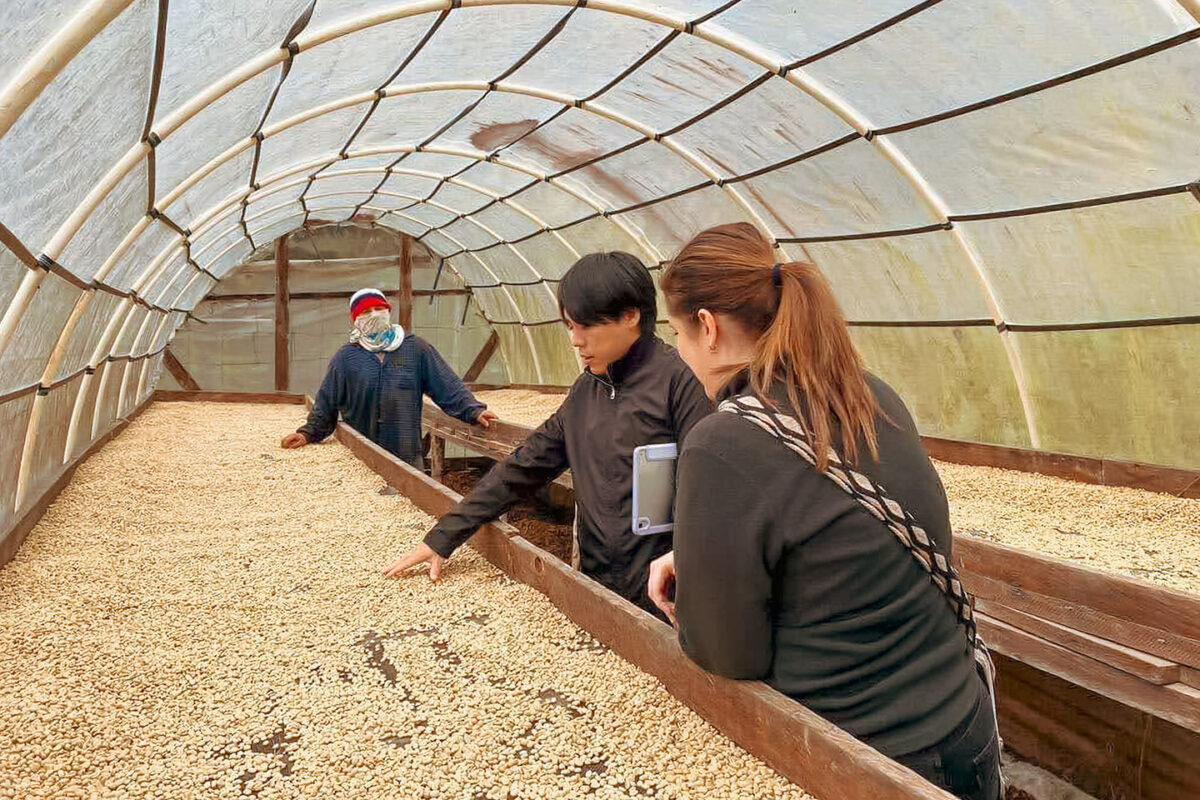
This self-awareness influenced Shinagawa’s initial career choice. A trading company seemed like the perfect fit for leveraging his English skills, developed through his overseas experiences, and connecting people with different values, a role he saw as his strength.
“Sure, working with people in producing countries can be tough because they have different business customs and cultures. Delays are common, communication can be inconsistent, and quality issues are an everyday occurrence. But the biggest challenge, and also the most rewarding aspect, is figuring out how to navigate the business smoothly while acknowledging those differences.
If customers have issues with suppliers, simply relaying their complaint to the suppliers wouldn’t solve anything. Often, the key is fostering mutual understanding by helping each side appreciate the other’s circumstances and perspective.”
At Marubeni, Shinagawa’s mediating skills proved valuable as well. Uncomfortable with the rigid hierarchies and unwritten rules typical of large corporations, he felt compelled to act. He repeatedly worked to keep the organization dynamic by gathering opinions from employees who didn’t have much say – those who had things to say but struggled to make their voices heard – and conveying their ideas to upper management.
“I believe that organizations can quickly become dysfunctional if even small issues go unaddressed. I’ve always wanted to prevent situations where someone’s success comes at another’s expense. Making everyone happy may be impossible, but I don’t want to give up on achieving the greatest happiness for the greatest number. At TYPICA, we’re striving for ambitious ideals, so I see it as my role to strengthen our foundation that can easily fray.”

A rough path forward, but still, there’s hope
With climate change threatening to cut suitable areas for Arabica coffee production by half – a concern known as the “2050 problem” – sustainability has become a common refrain in the coffee industry. But making it happen isn’t as easy as it sounds.
If things stay as they are, we’ll see a drop in coffee production and quality, meaning people won’t be able to enjoy great coffee. Everyone understands that in order to achieve sustainability, it’s crucial to purchase green beans at fair prices from producers and for every company in the supply chain to act with the industry’s best interests at heart. Yet, Shinagawa has seen time and again that this remains just an ideal on paper.
“In Japan’s retail-driven market, there’s still an intense focus on reducing costs by even a single yen in the commodity coffee segment, and listed companies must prioritize shareholder profits. Maintaining fair prices means higher end prices, which requires consumer understanding. Sustainability becomes impossible if anyone prioritizes short-term or individual gains over collective benefit.”
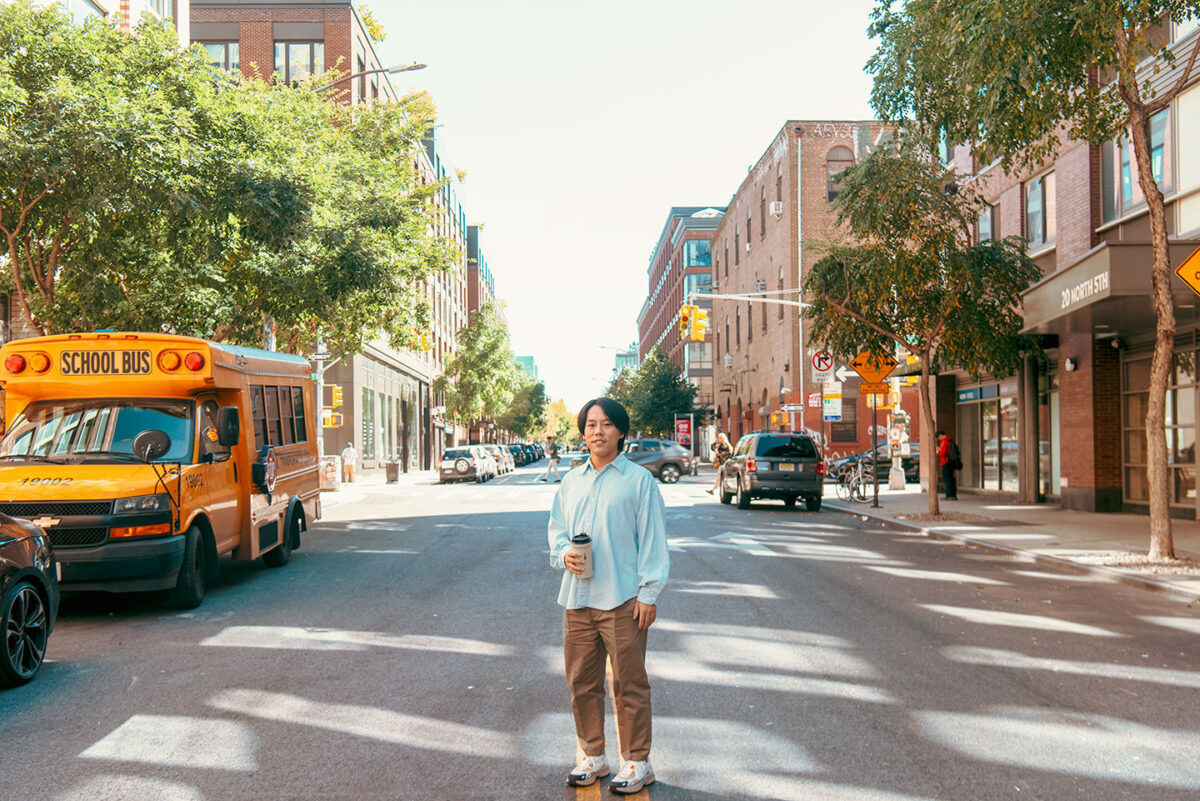
TYPICA, which has pursued sustainability through transparent direct trade, now faces its own dilemma: prices can’t decrease without increased volume, but volume won’t increase without lower prices. As a relatively new company, gaining trust from risk-averse major clients can be challenging. While the road ahead remains difficult – given the ambitious goal of transforming industry structure – Shinagawa maintains measured optimism.
“Our New Model, which is our new online platform we launched in August, could enable significant growth. While the outcome remains uncertain, I’m excited about the challenge. Whether it was university club activities or attending concerts – which I love – I’ve always enjoyed sharing enthusiasm with others. That’s one reason I chose TYPICA.”












